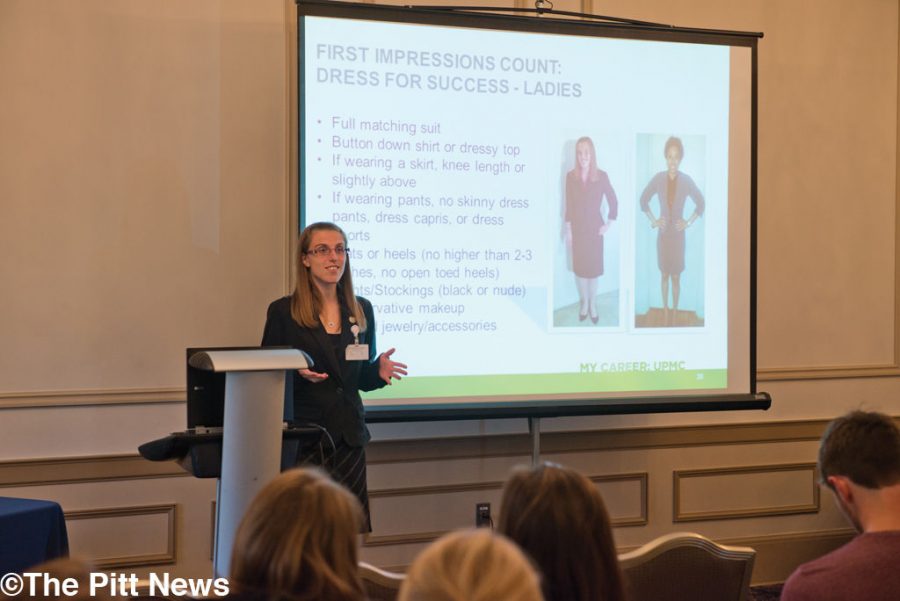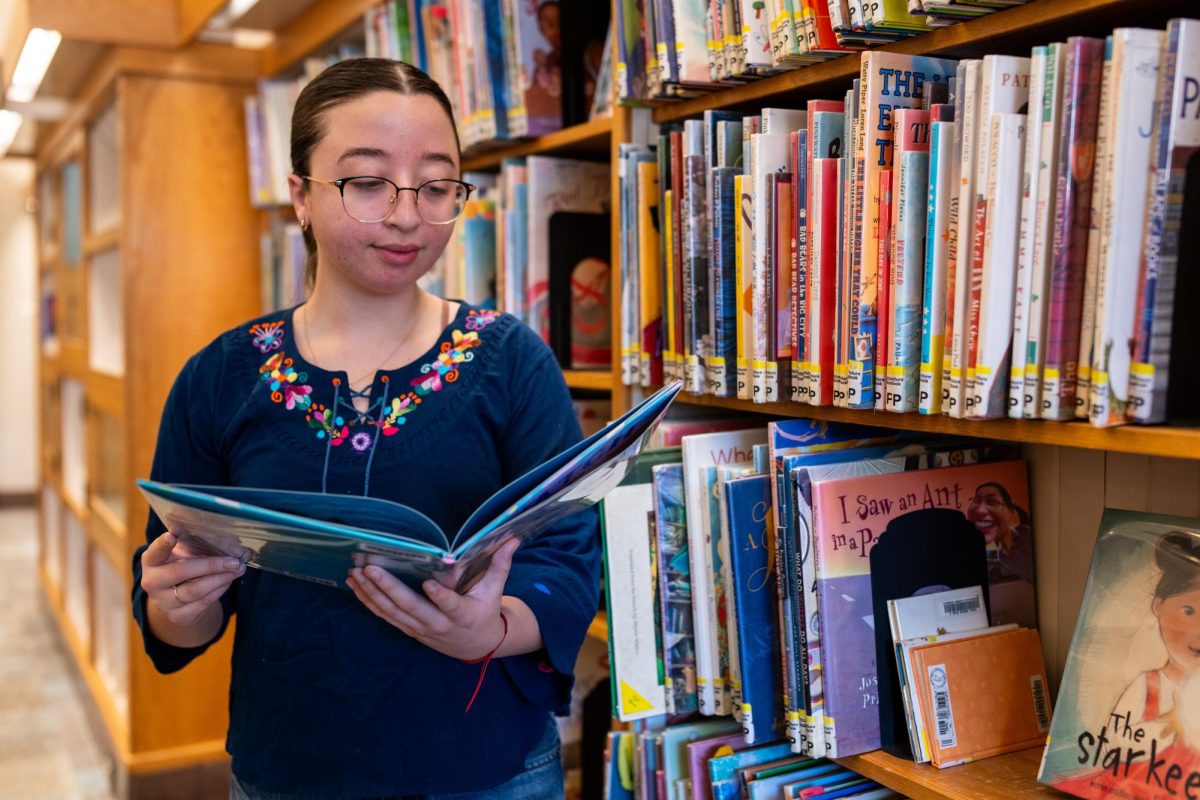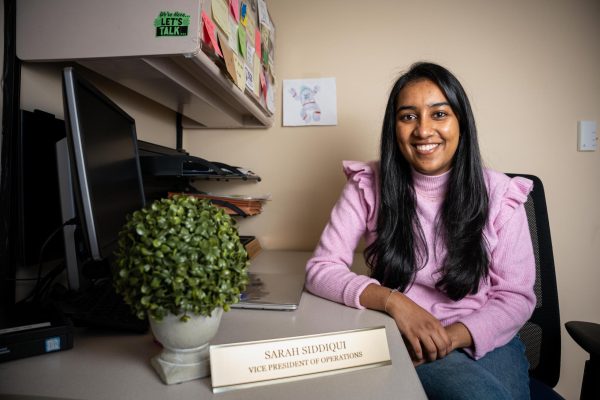Crunch time: seniors get fit for job market
September 15, 2014
On average, job recruiters only give interested applicants six seconds of their time.
And that six seconds is how long the typical hiring manager looks at a resumé, according to UPMC recruiter and researcher Maria Gerardi. Gerardi is a Pitt graduate and spoke Wednesday at Senior Career Bootcamp in the William Pitt Union to seniors looking for tips to get hired after graduation.
The bootcamp helped students perfect their resumés and prepared them for the hiring process with workshops designed to teach them how to navigate the upcoming Career Fair on Sept. 24 at the Petersen Event Center.
The Office of Career Development and Placement Assistance hosted the two-hour bootcamp, which began at 6 p.m. Along with a station set up for resumé tips, the bootcamp also had stations for interview and networking tips and job search strategies. Roughly 50 students attended the event.
Gerardi, who previously worked at the University as a student consultant and a peer adviser during the 2012-2013 school year, opened the event with a speech advising students to capitalize section headers such as “Experience” or “Education” on their resumés, so they’ll stand out to recruiters.
She also suggested collecting business cards from recruiters at the Career Fair and writing down what each employer may have said on the back of the card so that nothing gets lost. Sending a follow up “thanks for chatting” email after the fair would also be a good idea, Gerardi said, and is not something most people think to do.
If you’re lucky enough to snag a business card and begin exchanging calls, Gerardi said to have a professional voicemail message set up and absolutely nothing resembling a prank message.
Geradi discussed the Career Fair from a recruiter’s point of view and spoke about everything from how to construct the all-important resumé to how to dress appropriately for the Career Fair and future interviews.
“Speaking for UPMC personally, we get a lot of high-quality students from Pitt, and these events are where we get to meet you, so it’s a win-win situation,” Gerardi said.
Megan Robinson and Paige Kendell, both seniors who will graduate in April, understand the importance of having a strong resumé.
Robinson, a chemical engineering major, came to the career bootcamp to listen to Gerardi’s speech and have a member of the career development teamreview her resumé.
“I came tonight because the Career Fair is in a week and to have someone look at my resumé who’s not my mom,” Robinson said.
Kendell, who is majoring in bioengineering, echoed Robinson’s value of resumés.
“The resumé is the key to everything,” she said.
Gerardi also discussed other key traits potential employees should possess, such as a strong elevator pitch — a short, autobiographical speech — and appropriate work attire. Gerardi said men should not wear brightly colored shirts and instead stick to white or light blue. Women, Gerardi said, should limit heel height to two to three inches, and completely forgo the trend of skinny-style dress pants.
Gerardi said that although it sounds rude, it is a recruiter’s job to judge, so he or she will judge your work attire. But, she said, how students pitch themselves to employers is the most important.
What you wear carries weight, but without a proper elevator pitch, what you say can negatively outweigh any stellar Ralph Lauren ensemble.
The pitch should be short enough that you could give it in the time it takes to ride an elevator but should highlight all the important things an employer would want to hear about a potential new employee, such as qualifications, past experience in the job field and anything that would make that person stand out from other qualified individuals.
Trisha Hyatt, an employment development specialist in the Office of Career Development and Placement Assistance, helped to organize the bootcamp.
Hyatt said the office called the event a bootcamp because of the quick style of the booths. Participants spent about eight to 10 minutes at each booth, and then rotated with another group.
“We don’t want seniors feeling overwhelmed by the process,” Hyatt said regarding the short info sessions.








